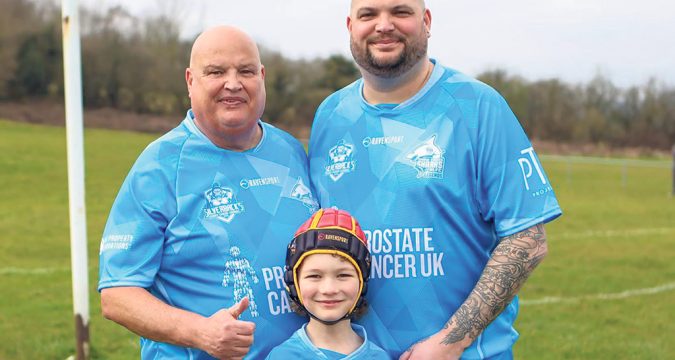 IT was a wonderful day at Shaw Cross, and make no mistake.
Not only did the Prostate Cancer charity benefit through a five-figure sum, but there were some memorable moments for a couple of the Sharks’ families to enjoy.
The Whitemans – grandad Keith, his son Ricky and grandson Walter - turned out together for their beloved club against th
IT was a wonderful day at Shaw Cross, and make no mistake.
Not only did the Prostate Cancer charity benefit through a five-figure sum, but there were some memorable moments for a couple of the Sharks’ families to enjoy.
The Whitemans – grandad Keith, his son Ricky and grandson Walter - turned out together for their beloved club against th Talking Grassroots: Three generations of families play together at Shaw Cross Sharks
 IT was a wonderful day at Shaw Cross, and make no mistake.
Not only did the Prostate Cancer charity benefit through a five-figure sum, but there were some memorable moments for a couple of the Sharks’ families to enjoy.
The Whitemans – grandad Keith, his son Ricky and grandson Walter - turned out together for their beloved club against th
IT was a wonderful day at Shaw Cross, and make no mistake.
Not only did the Prostate Cancer charity benefit through a five-figure sum, but there were some memorable moments for a couple of the Sharks’ families to enjoy.
The Whitemans – grandad Keith, his son Ricky and grandson Walter - turned out together for their beloved club against th 